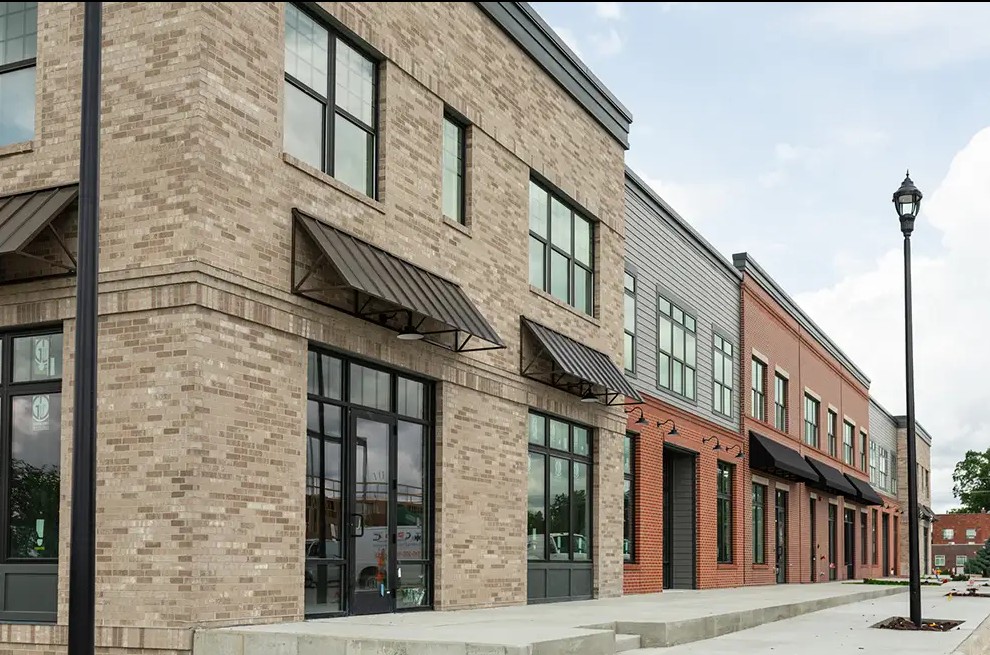NOTEBOOK: Could ‘high-profile’ foreclosure case move to an Iowa specialty court?

KATHY A. BOLTEN Oct 7, 2020 | 9:06 pm
3 min read time
675 wordsReal Estate and Development, The Insider Notebook
During a court hearing on Sept. 29 to appoint a receiver on a high-profile piece of downtown property going through foreclosure, the judge asked the parties involved if they wanted to move the case to Iowa’s business court.
The specialty court is one I hadn’t heard of, so I looked it up.
According to the Iowa Judicial Branch’s website, the state’s Business Specialty Court began as a three-year pilot program in December 2012. The court became a permanent part of the state’s court system in February 2016.
Since it began, the business court has disposed of 69 cases; 37 cases are currently pending, according to a judicial branch spokesman.
The genesis of the specialty court can be found in the 2012 Report of the Iowa Civil Justice Reform Task Force, which wrote that key objectives of a business court included development of judicial expertise, a decrease in court backlogs, efficiency in resolving business-to-business or intra-corporate disputes, and business retention.
More than 20 states had or were considering adding business courts when the task force wrote its report.
States with specialty business courts had found that trial judges lacked “expertise or familiarity with the law applicable to commercial cases [causing] inconsistent decisions,” the task force wrote in its report. Specialization allows judges to become more proficient in specific areas of law, which in turn improves the quality of decisions they hand down.
In Iowa, a case is eligible for business court if it involves a claim of at least $200,000 in compensatory damages or a party is seeking a preliminary injunction or declaratory relief. The case must also involve one or more of the following, according to the judicial branch’s website:
-
Technology licensing agreement.
-
Internal affairs of a business.
-
Breach of contract, fraud or misrepresentation arising out of business transactions.
-
Shareholder derivative or commercial class action.
-
Commercial bank transactions.
-
Trade secrets, noncompete clause in a contract, or confidentiality.
-
Commercial real property.
-
Antitrust or securities.
-
Business tort claims between or among two or more business entities.
The judge in this week’s hearing to appoint a receiver to oversee a downtown Des Moines parking garage under construction at Fifth Avenue and Walnut Street asked whether the parties involved with the foreclosure case were interested in transferring it to the state’s Business Specialty Court.
“It’s a complicated case,” G. Mark Rice, an attorney for Bankers Trust Co., told District Judge William Kelly. It would be beneficial if the same judge presided over all the case’s hearings, he said.
Todd Lantz said he hadn’t yet spoken with his clients – brothers Justin and Sean Mandelbaum – about transferring the case to the specialty court.
On Sept. 14, Bankers Trust filed a foreclosure petition that alleges 5th and Walnut Parking LLC and the Mandelbaums are in default on a $48 million construction loan that was due to be paid off on Aug. 31. The parking garage is part of a $200 million multipiece development planned by the Mandelbaums.
Kelly, who during this week’s hearing described the case as “high profile,” told the attorneys that he foresees the foreclosure case lasting a year or longer.
“I think we’ve all experienced [cases] in which you have one judge for a year or two and then you have a brand-new judge taking over at the end,” Kelly said. “It’s something to think about.”
Kelly said his rotation on civil cases will last through December 2021. “Unless something unexpected happens, I will have this case all through the next year.”
Who serves on the court?
-
Five Iowa District Court judges serve on the Iowa Business Specialty Court, according to the judicial branch’s website. They are:
-
Judge Kurt Stoebe, Humboldt.
-
Judge Lawrence McLellan, Des Moines.
-
Judge E. Sarah Crane.
-
Judge Sean McPartland, Cedar Rapids.
-
Judge John D. Telleen, Le Claire.
The judges are appointed to the specialty court by the Iowa Supreme Court, which considers judges’ educational background, experience with complex commercial cases and whether they want to be part of the court. Judges with the specialty court retain their normal District Court duties.










